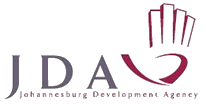BUSINESS leaders and economic experts lauded the City’s GDS2040 outreach programme at a business breakfast with the executive mayor, noting that it had been inclusive and had personified public participation.
Over the past eight weeks, the City has solicited a variety of views and critiques on its 30-year business plan, the Growth and Development Strategy 2040. The week from 24 to 30 September was set aside for consultation on Joburg’s economic growth.
At the breakfast, Executive Mayor Parks Tau said the GDS2040 was an open public platform for intense deliberations on how best the City could achieve targets it had set for itself. “The GDS is not the end to itself. It is an open platform for continued engagement, monitoring and evaluation of the City’s performance,” he told a sitting of Joburg business people.
He pointed out that the dialogue should continue even after the outreach had been concluded.
Job creation
For its economy to expand and for the City to provide a conducive environment for job creation, the mayor said efforts would have to be made to “create a core of entrepreneurs that will help grow the economy”.
“We must move beyond black business people being purchasers of 30 percent stakes in already existing businesses. We must get them to be entrepreneurs to initiate their own businesses because that is where new jobs will come from,” he said in an attempt to stimulate debate around job creation.
Most targets the City had set would be difficult to achieve without the support and involvement of the private sector.
“Unless we have a concerted programme of building a cadre of entrepreneurs I don’t think that we can move to the next level. The task is for us to collectively define what is to be done and what should all sectors do so that we can measure ourselves against set outcomes.”
Red tape
He conceded that bureaucratic red tape was sometimes a hindrance to the City’s attempt to run efficiently. “We have noted the red tape and bureaucratic regulations that inhibit economic growth. Let us work together in putting efficiencies in place,” he said.
Andrew Baker, a representative of the South of Johannesburg Business and Tourism Forum (Sojo), said the City should go back to basics and interact actively with entrepreneurs. Focus should also be placed on creating employment through conserving natural sites in the south of Johannesburg.
Some attendees advised the City to incorporate entrepreneurship into the public school curriculum, create a job focused economy for growth and expansion, and create economic nodes in townships to stimulate economic growth.
Other business people said the City should introduce tax breaks or incentives for businesses to stimulate job creation and economic growth. Local entrepreneurs should be actively involved in carving the vision and strategy of the City’s economic growth, they said.
Target
Economist Charlotte du Toit, a professor at Unisa, said the City needed to ask itself realistic questions. Its current growth target of 9 percent was not practical and its “growth performance” was not up to scratch despite strategies and attempts to improve it.
“We need a reality check. Where are we really and what is the extent of growth? The set economic growth target of 9 percent is only sufficient to deal with unemployment and poverty alleviation.”
She forecasted an average growth of 4 percent.
The City wants to broaden public investment in infrastructure, target labour-absorbing activities in manufacturing, construction and services, and promote innovation through green economy initiatives in an attempt to expand its economy and create jobs.
The last consultation session on the thematic week of economic growth will be held at the Parktonian Hotel in Braamfontein on Friday, 30 September.
Source: Joburg.org.za

